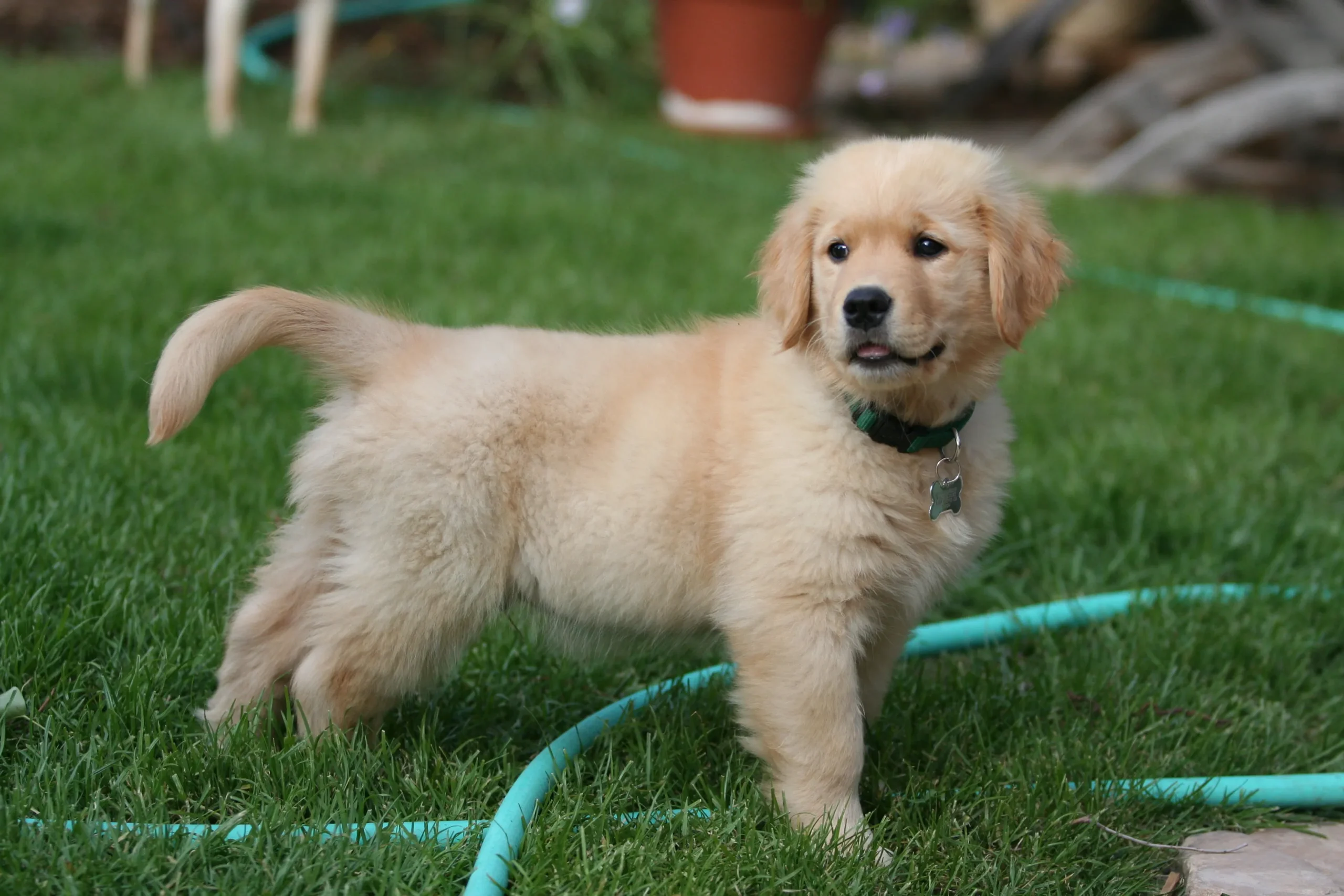Are you considering getting a field golden retriever? One of the most common questions potential owners have is: how big do they actually get? Well, you’re in the right place! In this article, we’ll explore the size of field golden retrievers and provide you with all the information you need to know. So, let’s dive in and discover the size potential of these lovable and energetic dogs!
When it comes to the size of field golden retrievers, there are a few factors to consider. First and foremost, it’s important to note that individual dogs can vary in size, just like humans. However, there are general guidelines that can give you an idea of what to expect. In terms of height, field golden retrievers typically range from 20 to 24 inches at the shoulder. As for weight, they usually weigh between 55 to 75 pounds. Keep in mind that these numbers are approximate and can vary depending on genetics, diet, and exercise.
What is a Field Golden Retriever?
If you’re considering adding a furry friend to your family, you might be considering a field golden retriever. These lovable companions are a popular choice for many dog lovers due to their friendly nature, intelligence, and versatility. So, what exactly is a field golden retriever?
A field golden retriever is a specific type of golden retriever that is bred for their working abilities. Unlike show golden retrievers, which are bred for their appearance, field golden retrievers are bred to excel in tasks such as hunting, retrieving, and agility. They have a leaner build and a more athletic physique compared to their show counterparts. This makes them excellent candidates for various dog sports and activities.
Field golden retrievers are typically smaller in size compared to show golden retrievers. They typically range in height from 20 to 24 inches at the shoulder and weigh between 55 to 75 pounds. However, it’s important to note that individual dogs can vary in size due to factors such as genetics, diet, and exercise.
One of the distinguishing features of field golden retrievers is their dense and water-repellent double coat. This helps protect them from the elements during their working activities, such as swimming or retrieving game from water. Their coat comes in various shades of gold and requires regular grooming to keep it looking its best.
In terms of temperament, field golden retrievers are known for their friendly and outgoing nature. They are highly trainable and eager to please, making them great companions for individuals and families alike. Their intelligence and willingness to work also make them suitable candidates for service and therapy work.
Whether you choose a field golden retriever or another type of golden retriever, it’s important to remember that each dog is an individual with its own unique personality and needs. Before bringing a furry friend home, take the time to research and learn about the specific breed or mix you’re considering, as well as the commitment and responsibilities that come with dog ownership.
So, if you’re looking for a four-legged companion that is not only beautiful but also athletic and versatile, a field golden retriever may be the perfect addition to your family. Their combination of intelligence, loyalty, and loving nature is sure to bring joy and happiness to your life for years to come.
The Size and Weight of Field Golden Retrievers
If you’re considering getting a field golden retriever as your next furry companion, one question that might come to mind is, “How big do they actually get?” Well, let’s dive into the size and weight of these amazing dogs.
Field golden retrievers are generally slightly smaller and more athletic in build compared to their show counterparts. They typically stand between 20 to 24 inches at the shoulder, which is similar to the height of other golden retriever varieties. In terms of weight, field golden retrievers usually range between 55 to 75 pounds. Keep in mind that individual dogs may fall outside of this range, as genetics and other factors can influence their size.
Maintaining a healthy weight for your field golden retriever is crucial for their overall well-being. It’s important to monitor their diet and make sure they receive appropriate exercise to prevent weight gain, as obesity can lead to various health issues. Regular visits to the vet can help you track your dog’s weight and make any necessary adjustments to their diet and exercise routine.
Goldendoodles, on the other hand, are a mixed breed between a golden retriever and a poodle. Their size can vary depending on the size of the poodle parent, whether it’s a standard, miniature, or toy poodle. Typically, Goldendoodles tend to be slightly smaller than field golden retrievers, with a medium-sized Goldendoodle weighing between 30 to 45 pounds and standing around 18 to 21 inches at the shoulder.
Remember, these measurements are just general guidelines, and individual dogs can vary in size even within the same breed or mix. Genetics, nutrition, and exercise play significant roles in determining the ultimate size of your furry friend.

« Unlock the Astonishing Secrets: The Surprising Truth about the Growth Timeline of Golden Retrievers
Unlocking the Incredible Personality Secrets of Golden Retrievers: Prepare to be Amazed »
Now that you have a better understanding of the size and weight range of both field golden retrievers and Goldendoodles, you can better prepare for the arrival of your new four-legged family member and ensure their well-being throughout their life.
Factors That Influence the Size of Field Golden Retrievers
When it comes to field golden retrievers, their size can vary based on several factors. Understanding these influences will help you better predict how big your furry friend might grow. Here are some key factors to consider:
Genetics
Genetics play a significant role in determining the size of field golden retrievers. These dogs are specifically bred for their athletic abilities and agility. Breeders carefully select parent dogs to pass on desirable traits such as size, strength, and overall build. However, it’s important to remember that genetics can be unpredictable, and individual variations may occur even within the same litter.
Lineage
The lineage of your field golden retriever also plays a role in their size. Certain bloodlines may have a history of producing larger or smaller dogs. If your pup comes from a line of larger field golden retrievers, there is a higher chance that they will grow up to be on the larger side. Conversely, if your dog’s lineage consists of smaller field golden retrievers, they may be more petite.
Nutrition and Exercise
Proper nutrition and exercise are crucial for the healthy growth and development of field golden retrievers. Providing a balanced diet and regular exercise routine tailored to your dog’s needs will ensure they reach their full potential size. Overfeeding or lack of exercise can lead to unhealthy weight gain, which may impact their ultimate size and overall well-being.
Gender
Gender can also be a factor in the size differences among field golden retrievers. Males tend to be slightly larger and heavier than females. While these differences may be subtle, they can influence the final size of your furry companion.
How to Determine if a Field Golden Retriever is Overweight
As a loving dog owner, it’s essential to keep an eye on your field golden retriever’s weight to ensure their overall well-being. But how do you determine if your furry friend is overweight? Here are some simple steps to help you assess your field golden retriever’s weight:
1. Visual Assessment: Start by visually inspecting your field golden retriever. You should be able to see their waistline behind the ribs when viewing them from above. A well-maintained weight will reveal a slight hourglass shape.
2. Ribs: Gently run your hands along your dog’s ribcage. You should be able to feel their ribs without excess fat padding. However, they shouldn’t feel too bony. There should be a moderate layer of muscle and fat covering the ribs.
3. Belly Tuck: From the side, there should be a noticeable tuck in your field golden retriever’s belly between the ribcage and the hind legs. This tuck indicates a healthy weight and musculature.

4. Activity Level: Consider your dog’s activity level. If your field golden retriever is sedentary or has reduced exercise, they may be more susceptible to weight gain. Regular exercise is crucial for maintaining a healthy weight for your furry friend.
5. Consult a Veterinarian: If you are unsure about your field golden retriever’s weight, consult a veterinarian. They can provide a professional assessment and help establish a suitable diet and exercise plan for your dog.
Regularly monitoring your field golden retriever’s weight is key to preventing health problems associated with obesity, such as joint issues, diabetes, and heart disease. By following these simple steps, you can ensure that your beloved companion stays in top shape throughout their life.
Remember, a healthy weight is essential for the well-being of your field golden retriever. Keep an eye on their diet, provide regular exercise, and seek guidance from a veterinarian if needed.
Common Health Issues Associated with the Size of Field Golden Retrievers
As a dog lover and owner of both a golden retriever and a Goldendoodle, I understand the importance of being well-informed about your furry companion’s health. In this section, we’ll explore some common health issues that can arise due to the size of field golden retrievers.

1. Orthopedic Problems: One of the main concerns with larger field golden retrievers is the risk of orthopedic issues. Their size and weight can put strain on their joints, leading to conditions such as hip dysplasia, elbow dysplasia, and arthritis. Ensuring your dog maintains a healthy weight and providing appropriate exercise can help reduce the risk of these problems.
2. Obesity: Larger field golden retrievers may be prone to obesity if not properly managed. Obesity can have serious consequences for your dog’s overall health, increasing the risk of heart disease, diabetes, and joint problems. It’s crucial to monitor your dog’s weight and adjust their diet and exercise routine as needed to prevent obesity.
3. Cardiac Conditions: Some larger field golden retrievers may be predisposed to certain cardiac conditions. Dilated cardiomyopathy (DCM) is one such condition that affects the heart’s ability to pump blood effectively. Regular check-ups with a veterinarian can help detect any cardiac issues early on and allow for timely intervention if necessary.
4. Cancer: Unfortunately, cancer can affect dogs of all sizes, and field golden retrievers are no exception. However, studies have shown that larger breeds, including field golden retrievers, may have a higher risk of developing certain cancers, such as mast cell tumors and lymphoma. Regular veterinary check-ups and early detection can greatly improve the chances of successful treatment.
5. Gastric Dilatation-Volvulus (GDV): GDV, commonly known as bloat, is a life-threatening condition that can occur in larger dogs, including field golden retrievers. It involves the stomach twisting, causing a buildup of gas and cutting off blood circulation. It’s important to feed your dog smaller meals throughout the day, avoid intense exercise immediately after eating, and be vigilant for symptoms such as abdominal bloating, restlessness, and unproductive retching.

Remember, while these health issues may be associated with the size of field golden retrievers, it doesn’t mean every dog of this breed will develop them. However, being aware of these potential concerns and
Conclusion
Understanding the size of field golden retrievers is important for their overall well-being. They are generally slightly smaller and more athletic compared to show golden retrievers, standing between 20 to 24 inches at the shoulder and weighing between 55 to 75 pounds. Factors such as genetics, lineage, nutrition, exercise, and gender can influence their size. Breeders carefully select parent dogs to pass on desirable traits, and certain bloodlines may produce larger or smaller dogs. Proper nutrition and exercise are crucial for healthy growth, as overfeeding or lack of exercise can impact size and well-being. Gender also plays a role, with males typically being slightly larger and heavier than females. Monitoring your field golden retriever’s weight is essential to prevent health problems associated with obesity. Common health issues related to their size include orthopedic problems, obesity, cardiac conditions, cancer, and gastric dilatation-volvulus (GDV). Taking steps to prevent and detect these health concerns early is vital. By being aware of the factors that influence size and maintaining a healthy weight, you can ensure the well-being of your field golden retriever.







